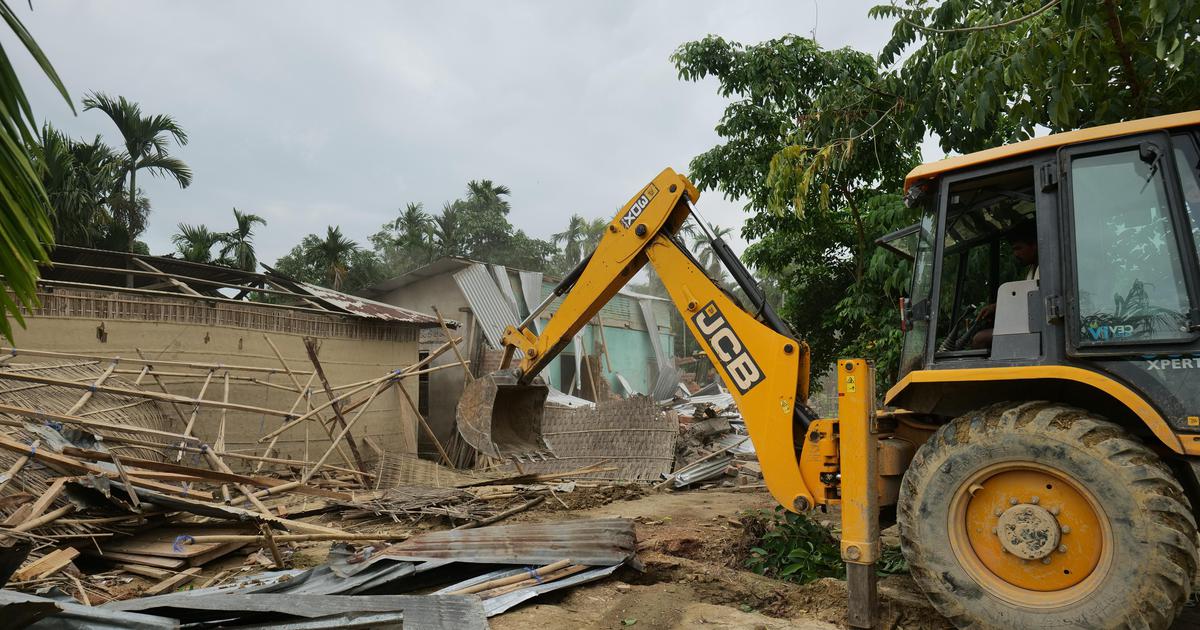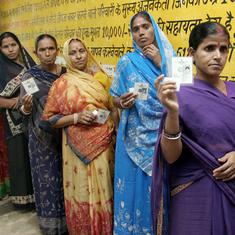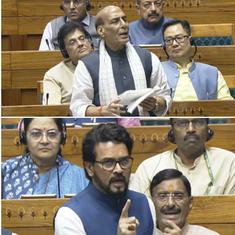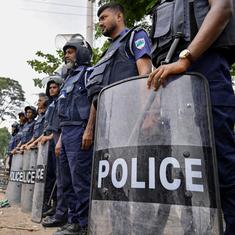‘Vacate Upper Assam in 24 hours’: Amid evictions, Miya Muslims given ultimatums
The state government on Sunday began an eviction drive targeting 350 Muslim families who had been living in a reserve forest in the Golaghat district.

The Assam government on Sunday launched an eviction drive targeting about 350 Muslim families, most of them Bengali-origin or Miya Muslims, who had been living at the Nambor South Reserve Forest in the Golaghat district.
Amid the eviction drive, videos by news outlets showed Assamese nationalist groups going door to door threatening Miya workers to leave Upper Assam. Members of the groups were seen warning Miya Muslims to leave the Sivasagar district in Upper Assam, where ethnic Assamese communities are in the majority.
A video by News Live showed Situ Baruah of the Jatiya Sangrami Sena warning a Bengali-origin Muslim man from Hojai district in middle Assam and saying: “Shut up, you Miya.....Miyas have to vacate Upper Assam within 24 hours.”
The Golaghat district administration said that “encroached areas in Gelajan and 3 No. Rajapukhuri” were cleared on Sunday. The administration said that 350 families were evicted and nearly 1,000 bighas of forest land were reclaimed.
“The eviction drive was carried out peacefully, without any resistance, reflecting the coordinated planning and execution by the authorities on the ground,” the district administration said.
A district official told Scroll that most of those evicted were Miya Muslims who had encroached on forest land since the early 1980s. Some of them claimed to have settled in the forest land in 1978, the official added.
This was the seventh eviction carried out in Assam since June 16. Since then, about 5,300 families, mostly Bengali-origin Muslims, have been displaced from their homes. Many of them have been forced to live under the open sky or in roadside makeshift huts made up of tarpaulin tents and sheets.
On Saturday, the Golaghat district authorities ended the first phase of a large-scale eviction drive in the Rengma Reserve Forest, Golaghat district. Over 1500 families were evicted and over 4,000 structures were razed in five days. The evicted forest area lies in a contested area on the state’s border with Nagaland, called the disputed area belt.
District authorities said that in the past five days, “vast stretches of encroached forest land have been reclaimed, with illegal structures dismantled across key high-density zones including Bidyapur, Pithaghat, Sonaribeel, Doyalpur, Dolonipathar, Kherbari, Anandapur, and Madhupur”.
Special Chief Secretary MK Yadav also stated that about 205 families in the Negheribil area under Merapani, located within the Doyang Reserve Forest, have been served eviction notices, with the eviction scheduled to commence from 8 August.
The displaced residents have accused the state government of selective targeting during the drive based on religion and ethnic identity, as non Muslim residents of Rengma Reserve Forest were not evicted. In Guwahati too, the non-Muslim residents allegedly encroaching on land were not served with eviction notices, while their immediate Muslim neighbours were issued such notices.
Commenting on these allegations, Assam Chief Minister Himanta Biswa Sarma on Saturday said his government will not evict the “indigenous population” as it doesn't does not consider the "unauthorised occupation" of public land by indigenous people as encroachment.
Sarma said the government will continue its eviction drives against encroachments by "suspected foreigners" across the state.
"There are two types of encroachments,” he said, according to PTI. “If indigenous people are living (unauthorisedly), then we don't consider it as encroachment. Those who have come from Bangladesh, we consider only those cases as encroachments.”
In Assam, Miyas or Bengali-origin Muslims, are frequently vilified as foreigners or undocumented immigrants from Bangladesh, even though they have proof of citizenship and have been living in the state for generations.
Also read: Assam’s agenda for Muslims goes national









